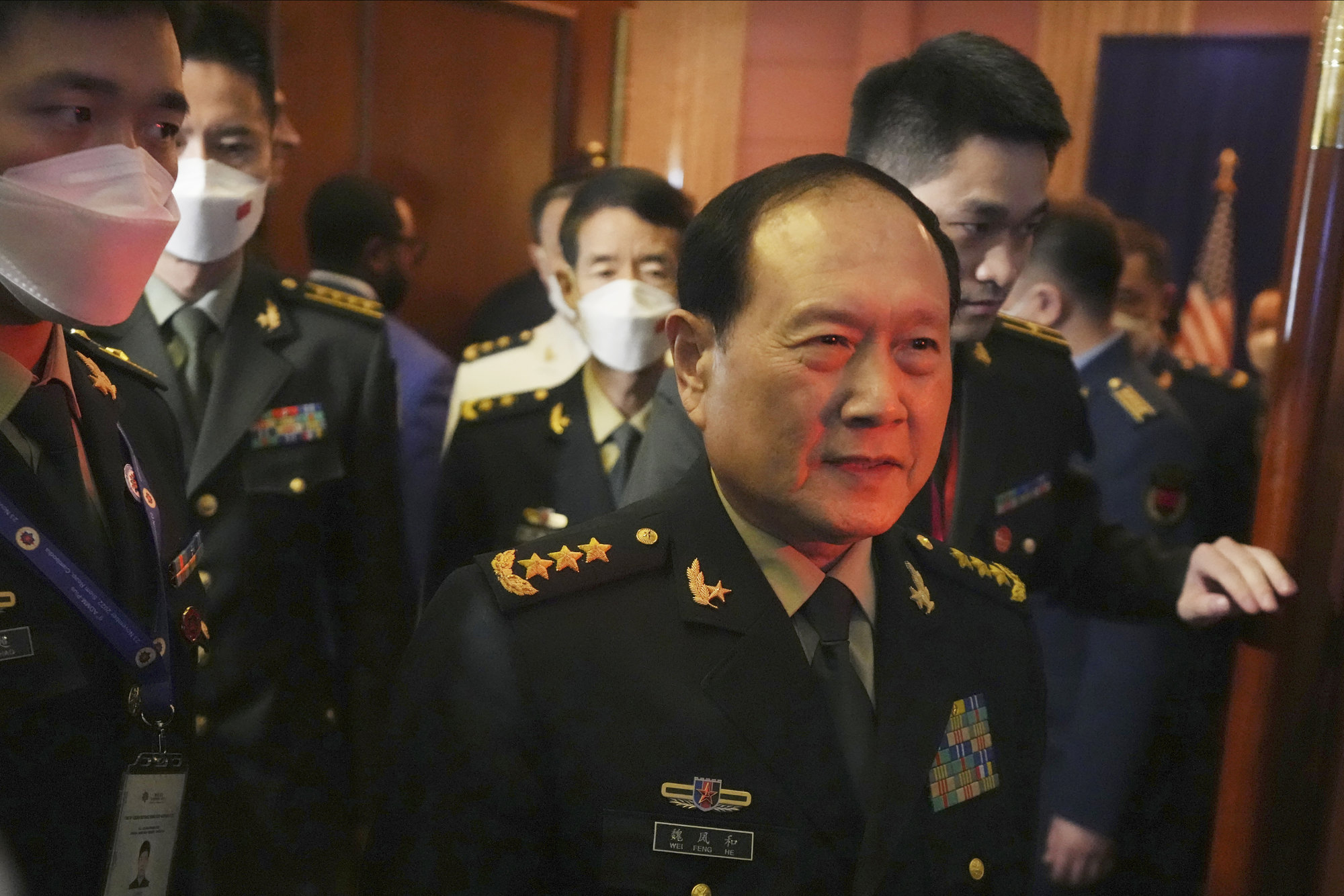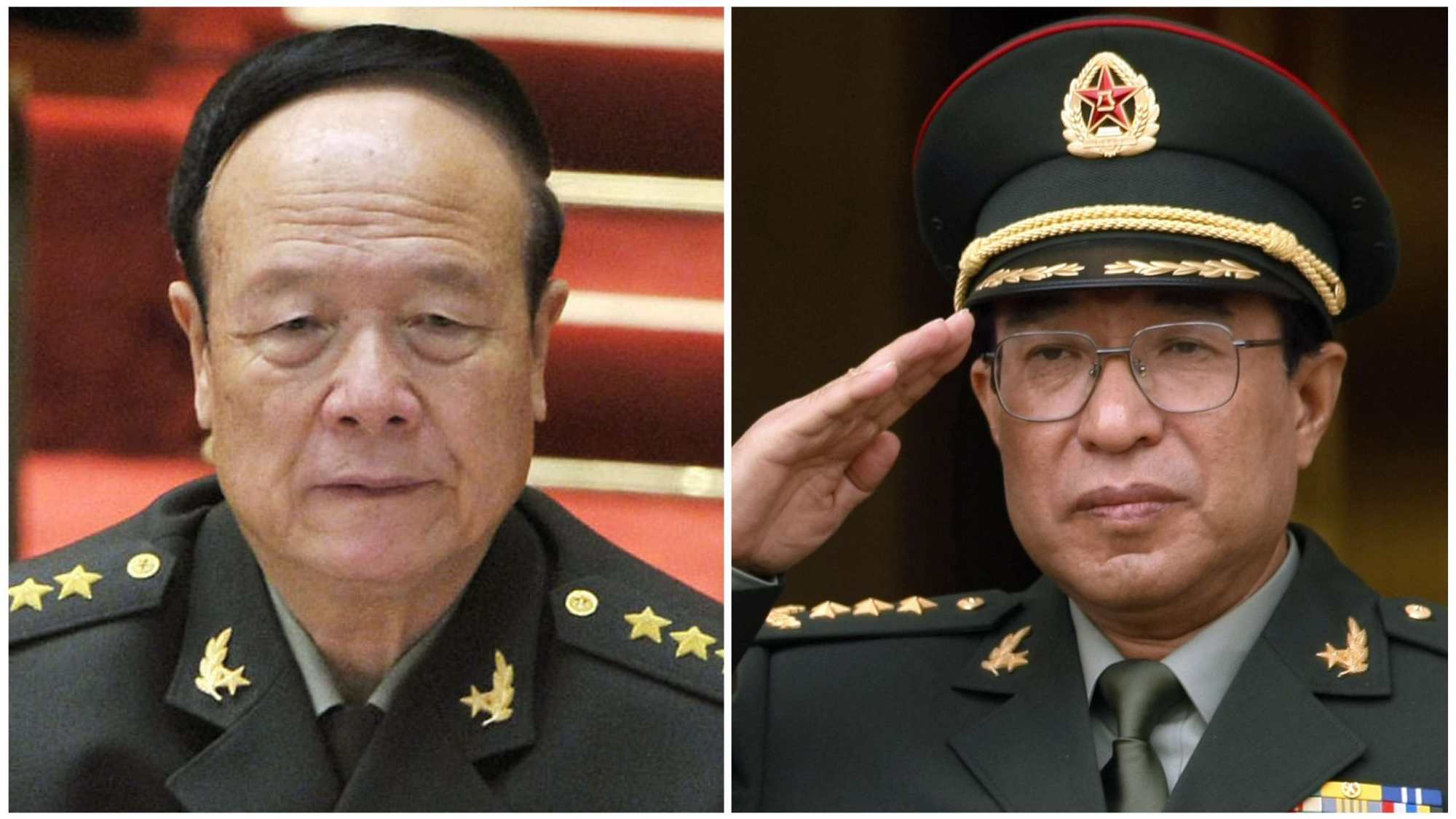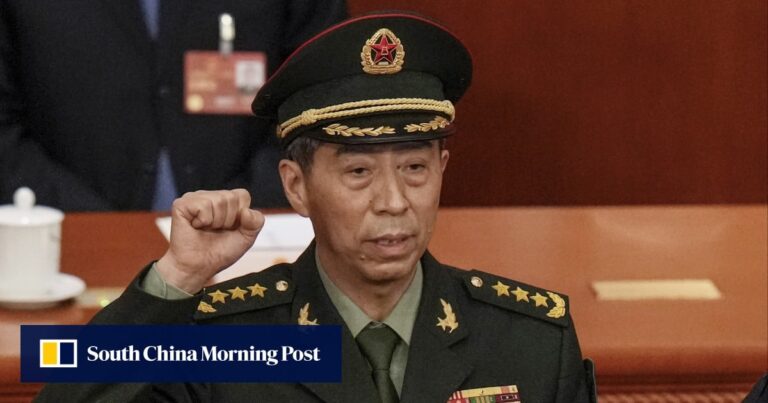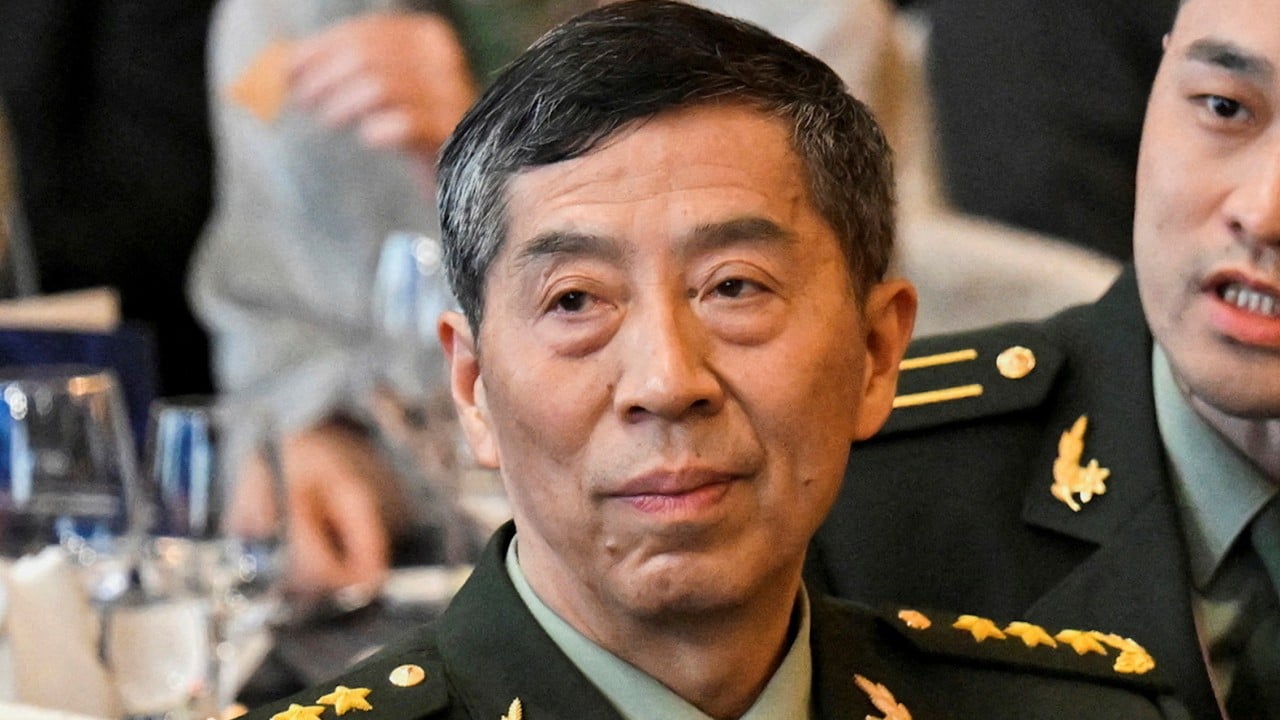Li was fired in October, just seven months after taking up the post. Wei served as defense minister from 2018 to 2023.
Observers noted particularly harsh language in the brief statement of charges against the two men.
The statement said he had “betrayed the trust of the Party and the Central Military Commission.” [Central Military Commission]”It has seriously polluted the political environment in the military and caused great damage to the party’s work, national defense, military construction and the image of party cadres,” he said.

“The accusations against Wei and Li reflect the party’s anger and indignation,” he said, adding that any call into question about China’s control over its nuclear arsenal would be of particular concern to party leaders.
“It’s like, ‘How dare you let me down in the most important job!'”
Wei held a number of senior nuclear weapons positions in the People’s Liberation Army for more than two decades, including as its first commander when the Rocket Force was established in 2015 as part of a major military overhaul.
Wei’s successor, Li Shangfu, spent decades in the military equipment sector, which has been the subject of a major corruption investigation over the past year.
In Thursday’s statement, Wei was specifically accused of degrading the People’s Liberation Army’s (PLA) “political ecosystem,” while Li was accused of polluting the PLA’s military equipment industry.

Analysts added that unlike Guo and Xu, both Wei and Li were promoted to the most senior positions under Xi, which may have further fuelled discontent in Beijing.
He noted that in addition to the usual brief description of the corruption allegations, Xinhua’s statement highlighted the political disloyalty of Wei and Li.
President Xi has been praised by China’s military leaders for his anti-corruption campaign, which he says has “saved the party and the military.”
Thursday’s statement was harsh, but it also raised new questions. The official line is that Wei Fenghe is accused of accepting bribes, but his successor, Li Shangfu, is accused of both accepting and giving bribes. No details were given about when Li gave the bribes or who he tried to bribe.
“It will be interesting to ask who Li, who was already the head of the military, funded,” said the Nanjing-based analyst.
While some observers argue that corruption within the PLA exposes weaknesses in the army’s military, others argue that corruption can actually improve the army’s fighting capabilities.
James Char, a research fellow at the S. Rajaratnam School of International Studies at Nanyang Technological University in Singapore, said regular corruption investigations in China’s military system should not be misconstrued as a sign of weakness in President Xi Jinping’s role as chairman of the Central Military Commission.
“The reforms he has implemented across the PLA since late 2015 show that Xi Jinping has more control over the PLA than any previous leader, including Mao Zedong,” Char said.
Lu Lishih, a former instructor at Taiwan’s Naval Academy in Kaohsiung, said the anti-corruption campaign could have a positive impact on the People’s Liberation Army’s fighting capabilities.
“Look at the cases of Guo Boxiong and Xu Caihou. They [Xi’s] Military reform? No. [PLA’s] Our combat efficiency has improved,” Lu said.
He added that hunting down “tigers” – a term the party’s disciplinary body uses to describe corrupt officials – would give honest and competent lower-level bureaucrats more hope and improve their promotion prospects.
Hong Kong-based military commentator Leung Kuo-liang said the corruption scandal will not have a major impact on the PLA’s modernization efforts, especially in terms of equipment, but it shows the urgency of improving the Rocket Force’s military reforms and establishing better checks and balances to restore confidence in China’s nuclear deterrent.
“The modernization of the PLA, especially when it comes to equipment, is a very comprehensive process carried out under Xi Jinping’s direct oversight. The PLA must regularly submit plans to Xi Jinping and the Politburo for approval. The Central Military Commission’s equipment department can then work with thousands of Chinese research institutes and weapons manufacturers to deliver new equipment,” Liang said.
“A few corrupt military officials may have received some money in the process, but I think it would be very difficult to rig the entire system under the direct supervision of the top leadership,” he added.
Liang said further reforms to China’s military structure were needed to prevent such corruption from spreading again.
Additional reporting by Amber Wang


